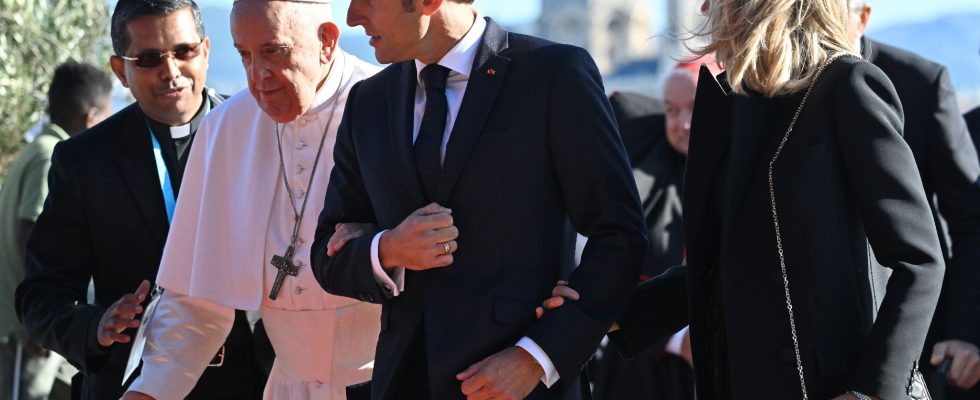After denouncing on Friday the “odious traffic and the fanaticism of indifference”, Pope Francis once again raised the migration issue, this Saturday, September 23, on the second day of his visit to Marseille. “The migratory phenomenon is not so much a momentary emergency, always good for generating alarmist propaganda, but a fact of our times,” he said at the close of the Mediterranean Meetings at the Palais du Pharo, believing that this process must be managed “with European responsibility capable of facing objective difficulties”.
“Two words resonated, fueling people’s fear: ‘invasion’ and ’emergency’. But those who risk their lives at sea do not invade, they seek hospitality,” the pope assured. They “should not be considered as a burden to bear”, he added, regretting that “several Mediterranean ports” have closed. The Pope once again takes up a theme that is dear to him, even as European solidarity is put to the test after the arrival of thousands of migrants on the island of Lampedusa. Interior Minister Gérald Darmanin thus assured that France “will not welcome migrants” from the Italian island, while the right and the far right criticized a “migrant overwhelm”.
Repeating his fear of seeing “the Mediterranean, cradle of civilization, transformed into a tomb of dignity”, Pope Francis again urged not to “close ourselves in indifference” while the vice-president of the European Commission in charge of migration issues, Margaritis Schinas, was present in the audience. Castigating “archaic and bellicose nationalisms”, he once again called for “a surge of conscience” to “prevent a shipwreck of civilization”. And warned that the future “will not be in the closure which is a return to the past”.
An “integration” of migrants
In his call for international solidarity, Francis considered that the solution was “to ensure, according to the possibilities of each person, a large number of legal and regular entries”, which would be “sustainable thanks to a fair reception on the part of the European continent, as part of a collaboration with the countries of origin. He also pleaded for an “integration” of migrants, which is “difficult, but far-sighted”, in the face of “assimilation, which does not take into account differences” and “compromises the future by increasing distances and causing ghettoization, causing hostility and intolerance.
Furthermore, the Pope invited himself into the French debate on the end of life: “Who listens to the groans of isolated elderly people who, instead of being valued, are parked in the falsely worthy perspective of a gentle death, in reality saltier than the waters of the sea?”, he asked while a bill is expected shortly on this issue. “The real social evil is not so much the increase in problems as the decline in care.”
Furthermore, the Pope invited himself into the French debate on the end of life: “Who listens to the groans of isolated elderly people who, instead of being valued, are parked in the falsely worthy perspective of a gentle death, actually saltier than the waters of the sea?” he asked, while a bill is expected shortly on this issue. On abortion, he once again deplored the fate of these “unborn children, rejected in the name of a false right to progress, which is on the contrary a regression of the individual”.
